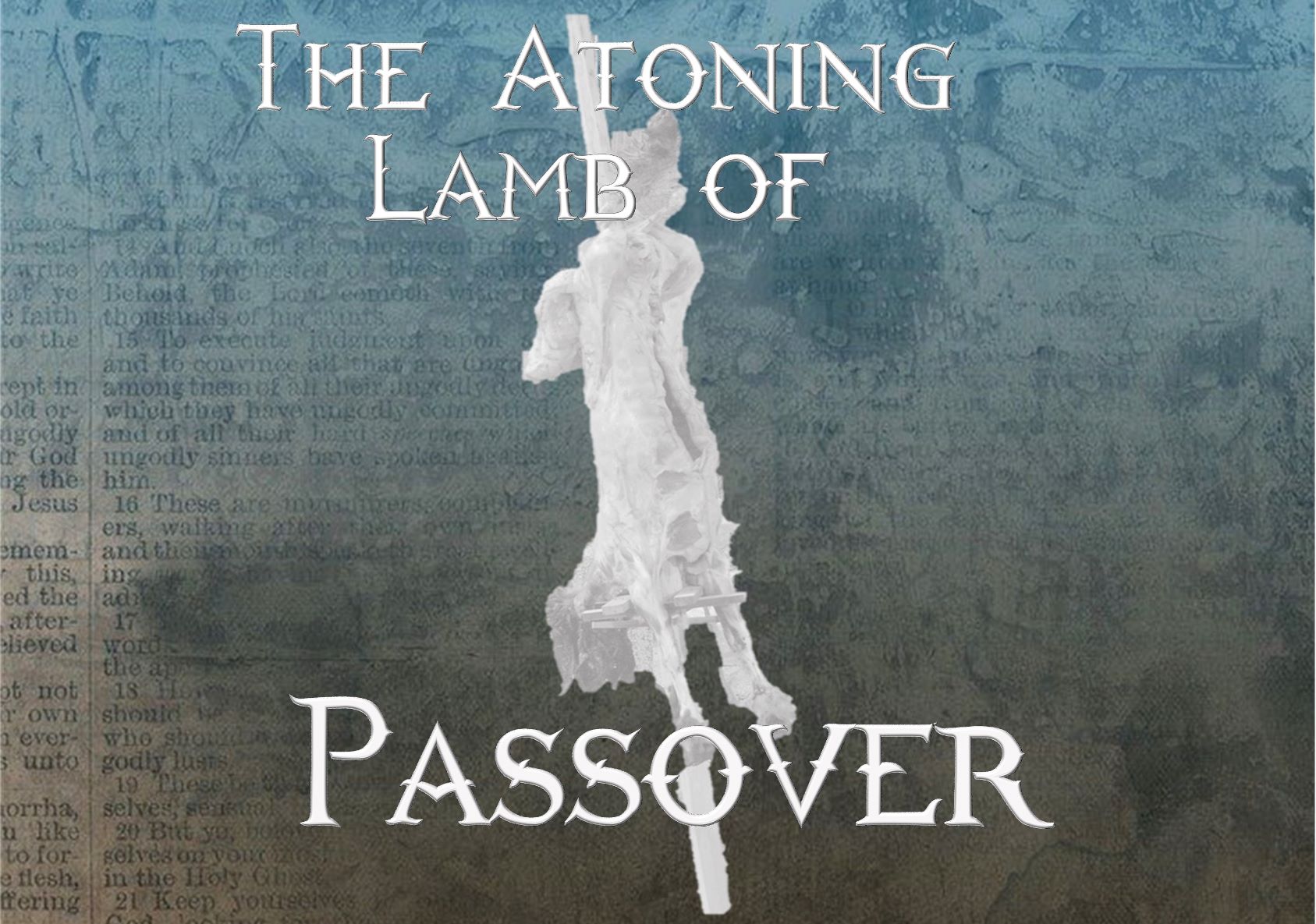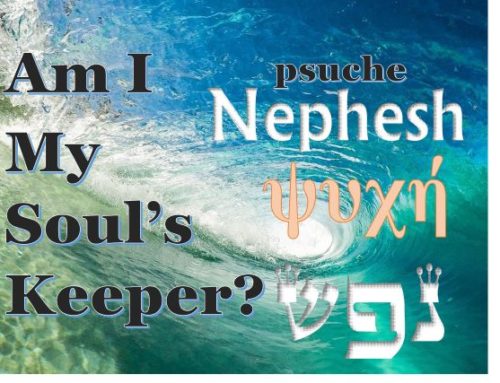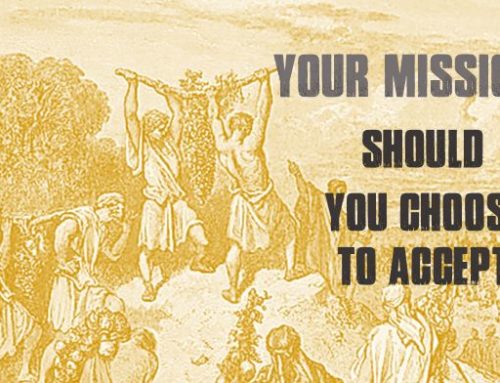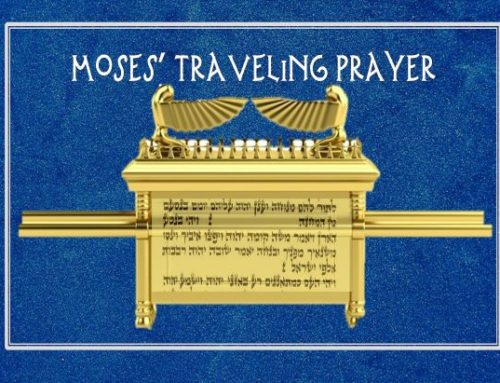Torah Portion Bo, Exodus 10.1-13.16, Haftarah, Jeremiah 46.13-28
“For the Lord will pass through to strike the Egyptians; and when He sees the blood on the lintel and on the two doorposts, the Lord will pass over the door and not allow the destroyer to come into your houses to strike you.” Exodus 12.23 NKJV
I sat on a bench in downtown Jerusalem’s Jaffa Street waiting for my family to finishing shopping. We had just celebrated a Resurrection sunrise service at the garden tomb. Soon, a rabbi joined me on the bench. For a moment, neither of us said a word, until a group of Ethiopian Christians carrying palm branches passed by. Why are they carrying palm branches”, he asked, in Hebrew. For the Orthodox Ethiopian Church it was Palm Sunday. Sensing this was a divine moment I said, “They are remembering the triumphal entry of Yeshua to Jerusalem, when the people of Israel cried, Baruch ha’Ba B’Shem Adonai, (Blessed is He who comes in the name of the LORD). “What”, he shouted, “Do you believe that too!” “Yes”, I said, “Yeshua’s shed blood during Passover provides atonement of sin for those who trust in Him.” He erupted in even louder objections. “Passover” he said, “has nothing to do with atonement or forgiveness! Yom Kippur is our day of atonement!” And with a wave of the hand he imagined the argument vanquished. That is, until I quoted one of Israel’s great Sages, Rabbi Meir, 2nd Century; a quote he did not expect me to know. Before I reveal what so dramatically changed our conversation, we must look briefly at our Torah Portion.
I. Striking the Door with Blood
“Kill the Passover lamb. And you shall take a bunch of hyssop, dip it in the blood that is in the basin, and strike the lintel and the two doorposts with the blood that is in the basin.” Exodus 12.21b-22a NKJV
Israel faced just three more contractions to freedom. The last plague would not differentiate between Israel or Egypt, Goshen or the Nile Delta. Obedience made the difference. Obedience is an outgrowth of faith. As one writer said, “I will show you my faith by my works.” In faith they sacrificed the spotless lambs. The shocking image of the field dressed lambs on a wooden beam supported by cross bar was unmistakably reminiscent to the later Roman crucifixion. Though the sacrifice of the Passover lamb was repeated year after year, the mystery of the blood painted on door posts was not repeated. The very act of sacrifice was an act of faith, and striking the door with blood was an act of faith, but what message did those painted strokes convey?
II. Standing Behind the Blood
“Now the blood shall be a sign for you on the houses where you are.” Exodus 12.13 NKJV
Israel was told, “And none of you shall go outside the door of his house until morning.” Ex. 12.22 The blood on the door posts served as a SIGN for Israel, not for the world, Egypt, and not even for the destroying angel. It is a sign for you! Some suggest the lintel of the door was painted in such a way that even from the inside the blood could be seen. No matter what sounds emanated from outside, the blood served Israel as a sign. The blood encouraged, and the blood reminded, “Greater is He that is within you than he that is within the world.”
The Blood of Yeshua is a sign for you, but only if you have applied that atoning blood. That blood speaks of better things. While we recognize the blood as a sign, God looked upon the blood. But here is a powerful point. It was not the blood that covered Israel. It was the LORD!
III. Standing Over the Door
“The Lord will “pasach” the door and not allow the destroyer to come into your houses to strike you.” Exodus 12.23
And so, on that beautiful Resurrection Morning, I looked at my new friend, and said, “The Sages, (ancient Rabbis of blessed memory) do not agree with you! Passover is especially a message of atonement and redemption.” Before I tell you the quote that changed our discussion, I need to briefly explain a Rabbinic interpretive rule from the time of Yeshua. Since Biblical Hebrew has a limited vocabulary, a word can have multiple meanings depending on context and construct. Sometimes, even context can lend to more than one meaning. To bring out the amplification of such words in the text, an interpretive method called Al Tikrei, meaning “Do not read x, read word y”, developed in the early first century. Here is an example from Jeremiah. The Lord is called, “the hope of Israel”, but the word translated “hope” (mikveh), however can also mean a pool of waters for purification.[1]
“O Lord, the hope (Mikveh) of Israel, All who forsake You shall be ashamed. “Those who depart from Me Shall be written in the earth, because they have forsaken the Lord, The fountain of living waters.” Jer. 17.13 NKJV
And so, one commentary says, do not read “hope of Israel”, read, “the Lord who ‘purifies’ Israel”. This parallels nicely, “the LORD, the fountain of living waters”. This interpretive method is not meant to replace or negate the plain meaning. It simply amplifies the reading.[2] Go back now to my friend who has just told me that the word Passover has no connection to atonement.
Do Not Read Pass Over, Read Atonement
“My friend”, I said, “the Sages (ancient Rabbis of blessed memory) do not agree with you that Passover is not about atonement. Passover is especially about atonement and redemption. Rabbi Meir, second century, has said that the amplified meaning of Passover is ‘atonement covering.”
“‘Fix ye, therefore, this month for Me and for you, because I will see therein the blood of the Passover and will make atonement for you.” Shemot Rabbah XV: 12[3]
[4] וְקִבְעוּ הַחֹדֶשׁ הַזֶּה לִי וְלָכֶם, שֶׁאֲנִי רוֹאֶה דַּם הַפֶּסַח וּמְכַפֵּר עֲלֵיכֶם. שמות רבה טו: 12
Though the plain meaning of pasach is to “skip over”, Rabbi Meir saw an amplified meaning which fit the context better. He argued that the Hebrew pasach in this context means atoning cover (mekaper)! Isaiah 31.5 similarly used the verb pasach to describe a birds wings covering Jerusalem from the Assyrians.
Read Exodus 12.23 for yourself. I will substitute the words “pass over” with the Hebrew transliteration. What word naturally should go there?
“For the Lord will pass through to strike the Egyptians; and when He sees the blood on the lintel and on the two doorposts, the Lord will pasach the door and not allow the destroyer to come into your houses to strike you.” Exodus 12: 23 NKJV
Pasach in this context describes the Lord standing over the door, preventing the destroyer from coming in. The LORD Himself became the atoning “cover” (mekaper). The mention of Rabbi Meir’s quote turned the discussion to the atoning work of Yeshua.
Conclusion
Faith strikes the door with blood. Obedience stands behind the door’s blood. But the Lord Himself stands over the door as our shield. Israel’s protection was not the lamb’s blood. The blood was their sign. The protective covering, the atonement, preventing the destroyer from entering was the LORD Himself! In Exodus 12.23 He did not skip over the door when the destroyer arrived, He covered the door! Like many, you may be facing a battle. Threatening noises can be heard outside. Friend, do you see the blood of a spotless lamb? His saving blood is your promise. If you have the blood of the Passover lamb on your life, the Lord stands over the door of your life to atone, cover, and defend. Yeshua’s blood is Passover’s sign for you. You belong to Him.
Shavua Tov from Zion
[1] Jerusalem Talmud, Yoma 42b
[2][2] Al Tikrei. (n.d.). Retrieved January 26, 2021, from https://www.jewishvirtuallibrary.org/al-tikrei
[3] Harry Freedman and Maurice Simon, eds., Midrash Rabbah Exodus, trans. S.M Lehrman, vol. III (London: Soncino Press, 1983), 174.
[4] Shemot Rabbah 15:12. (n.d.). Retrieved January 25, 2021, from https://www.sefaria.org.il/Shemot_Rabbah.15.12?vhe=Midrash_Rabbah_–_TE&lang=en&with=all&lang2=en
